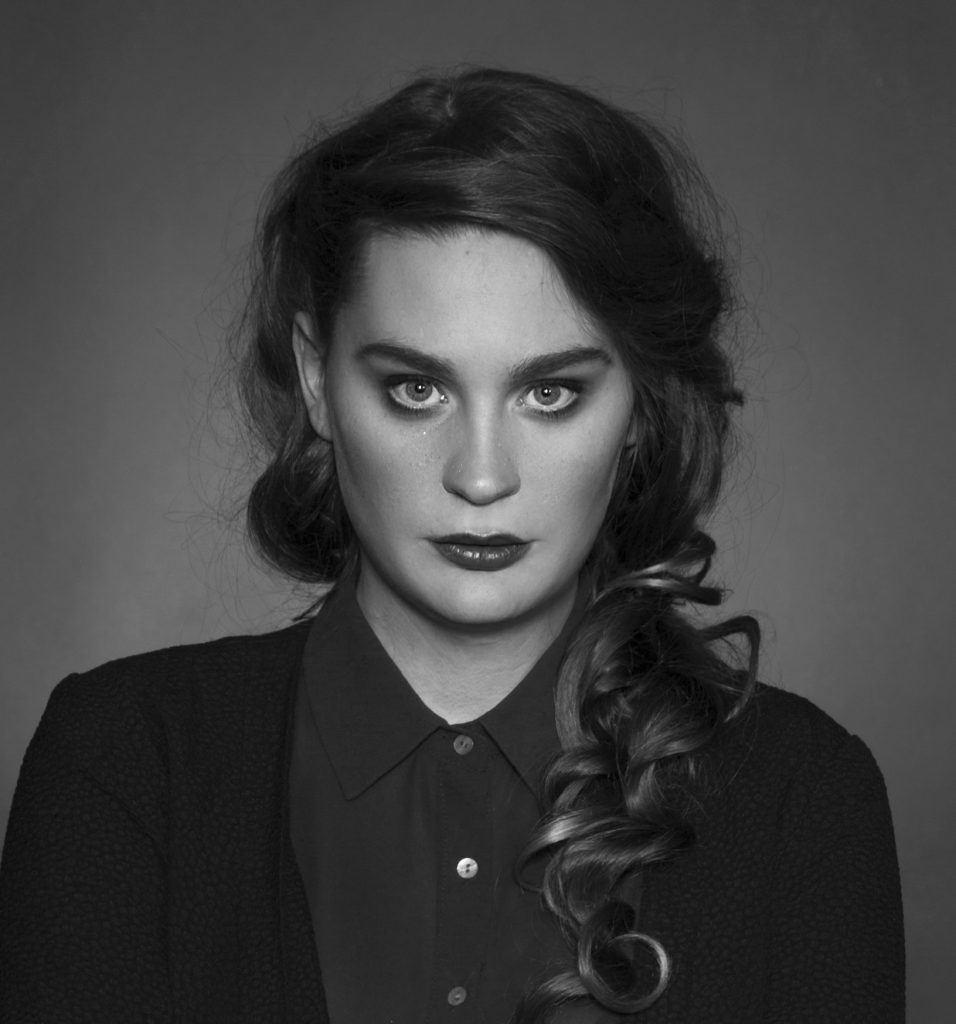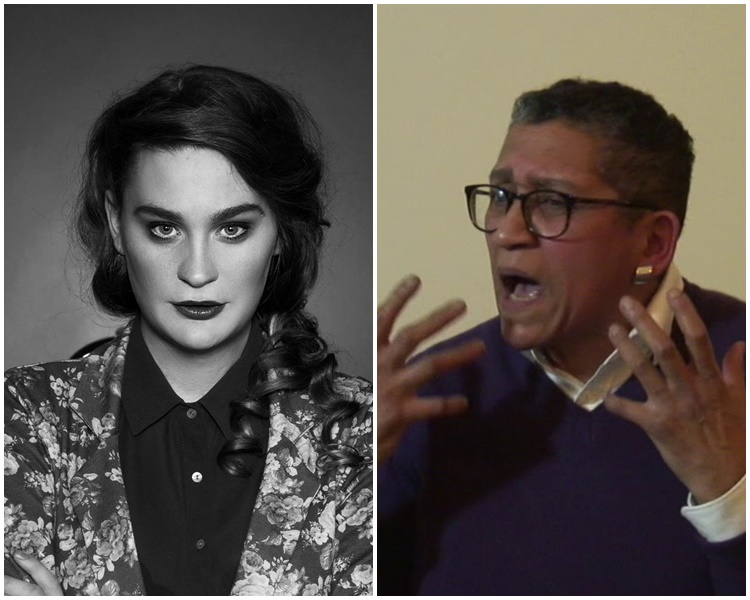Owl Fisher and Linda Bellos debate hate speech on BBC two and now the Internet is on fire.

Should hate speech be protected by the laws about free speech? And do universities have the right to no platform speakers that they consider advocates of hate speech?
Yesterday morning, January 10th 2018, the news and current affairs program that Victoria Derbyshire leads on BBC two tackled this questions and amongst her guests was the Icelandic activist Ugla Stefanía Kristjönudóttir Jónsdóttir, or Owl Fisher as they are called in UK.
The other guests were Patrick Kilduff, the president of the student union of Edinburgh University which is one of the universities in the UK with the strictest policy about hate speech and lesbian feminist activist Linda Bellos known for her opposition to trans people getting the right to self-identify without psychiatric assessment. Bellos’ invitation to speak at Cambridge University last year was withdrawn because of her views on trans issues.
GayIceland contacted Ugla Stefanía right after the show and asked them how they felt the discussion went. “I thought it went good. I was pleased to be on with Patrick Kilduff who was also very sensible about the issue. I feel that we definitely got our points across very well and I managed to get across that the particular issue is about more than people not wanting a debate, it’s about not giving platform to hateful and harmful views that have negative consequences on a vulnerable group of people.”
“Bellos … smirked when I brought up the fact that views such as hers contribute to stigma which leads to high suicide rates amongst trans people.”
How did Linda Bellos react?
“Bellos seemed to brush off the seriousness of the matter and even smirked when I brought up the fact that views such as hers contribute to stigma which leads to high suicide rates amongst trans people. She seemed very dismissive about the fact how vile and harmful her views are and kept saying how she simply has concerns about the law and wants to discuss that.
She doesn’t seem to take it seriously that her views are dehumanizing, and she has even incited violence against trans people. It’s as if she is unable to admit and understand the ramifications of her views. She interrupted a lot and tried to derail more than listen to the points put across by myself and Patrick.”
Have you gotten any reaction after the show?
“Twitter has been quite active since it happened, but I imagine it will kick off once it gets out there in the media.”
Did you ask Bellos how she could be an activist for gay rights and still fight against the right of trans people?
“I didn’t, but the contradiction is blatantly obvious. Seems very bizarre to me how someone who is a feminist can advocate against the rights of trans people, and specifically target other women.”

Has there been a surge in the uttering of transphobia in the UK lately?
“Yes, there has. The Gender Recognition Act is being reformed and that has brought out visceral and vile responses in the media, in particular by The Sunday Times. They are publishing article after article that are blatantly transphobic and misleading.”
Has the reformation act been passed by the parliament yet?
“Not yet – no. It was actually halted because of the literal hate campaign launched by transphobic feminists. They are mainly against the part which will allow trans people to self-identify without a psychiatric assessment. And they claim this will be abused by men who want to enter women’s
spaces to abuse women while the reality is that these spaces are already accessible to trans women and in fact anyone. If there was a problem, there already would be. This isn’t creating a new problem.”
Is free speech at risk?
🗣️@BellosLinda says she was 'no platformed' because of her views that 'trans women aren't the same as women born female'
🗣️@UglaStefania is a trans filmmaker who campaigned to stop Germaine Greer from speaking at International Women's Day in Brighton pic.twitter.com/Bm0TNr580a
— Victoria Derbyshire (@VictoriaLIVE) January 10, 2018
In your opinion, what can be done to counteract those hateful opinions?
“Well, it’s to engage and combat the misconceptions that are out there – letting trans people and those who know what the issue is speak. This doesn’t pose a threat to anyone, and we need to reach those with legitimate concerns and tell them there is no threat.”
Is it difficult for trans people to get a platform to air their views?
“Definitely – and they are usually pitted against complete transphobes who literally do not see them as who they really are. It always becomes a debate about whether or not trans people are real and that should never be a debate. An outspoken racist who denies people of colour their humanity and rights would never be invited on with a black activist. So why are trans people put in that position?”
Do you find it degrading?
“Absolutely – it’s humilating and disrespectful to expect me to share a platform with them.”


